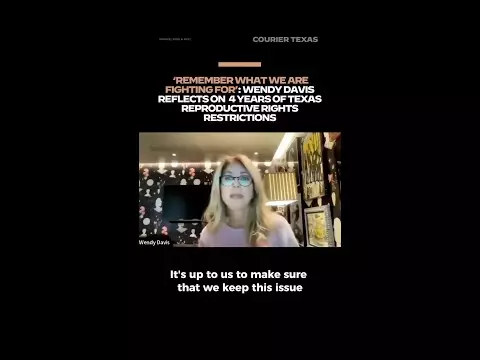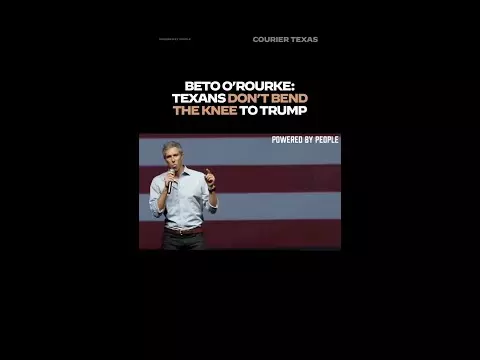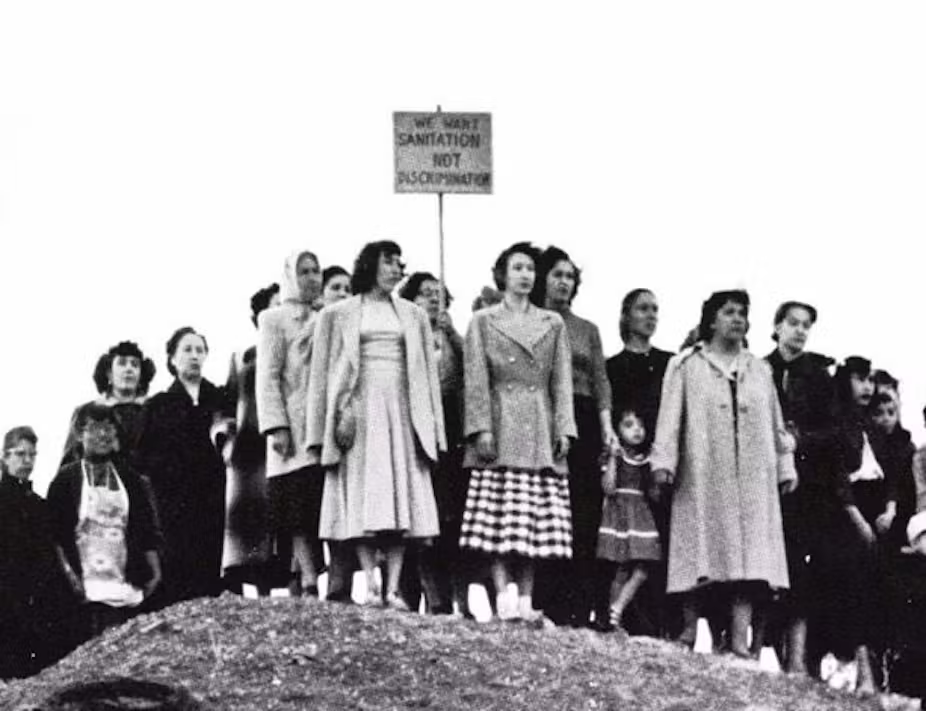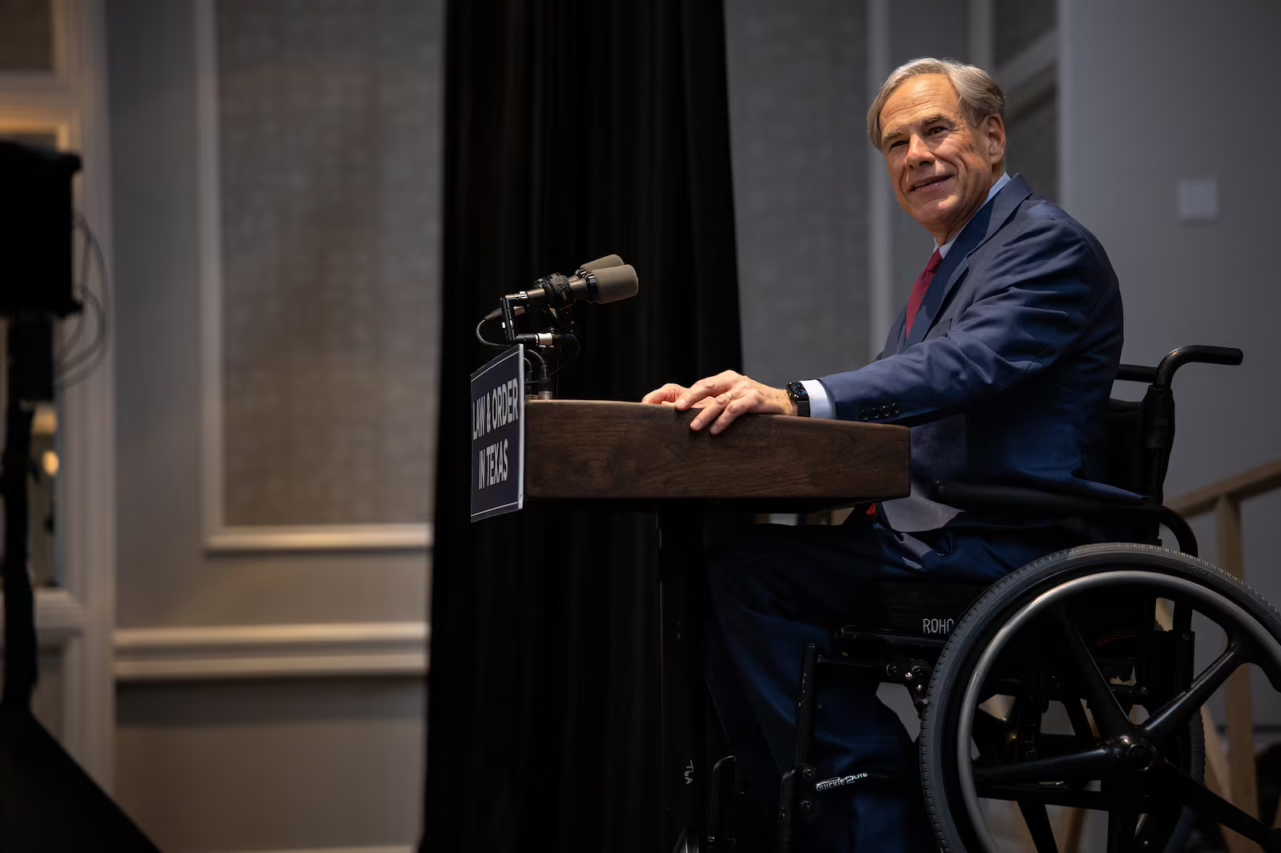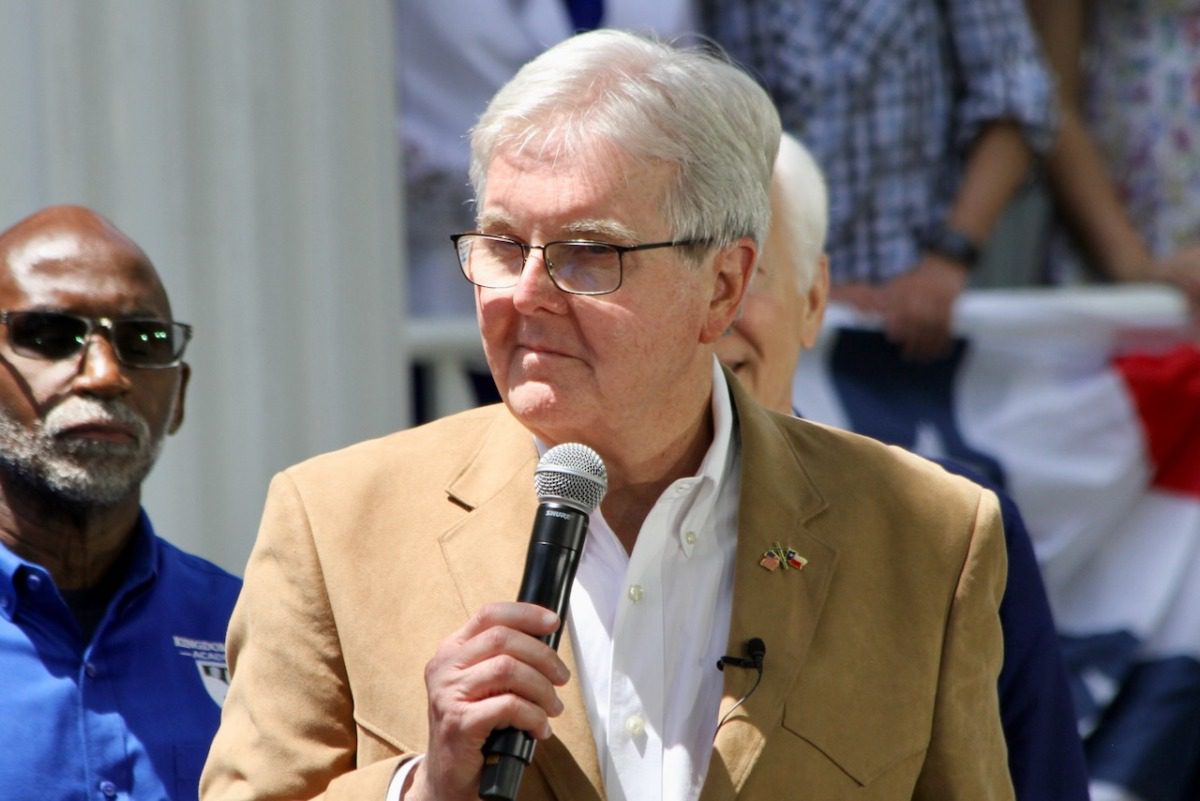
Lt. Gov. Dan Patrick pressured Republican lawmakers to ban THC, instead of regulating it. The measure is now being considered by Gov. Greg Abbott. (Photo by Matt Hennie)
Texas lawmakers banned THC products in Senate Bill 3, a controversial measure that threatens a state hemp industry that employs 50,000 people.
When it comes to THC, the Texas Legislature giveth and taketh away.
State lawmakers, under immense pressure from Lt. Gov. Dan Patrick, banned consumable THC products, an industry that has exploded around the state in recent years thanks to a loophole in a hemp bill the legislature passed in 2019. The ban will likely crush an industry that employs an estimated 50,000 people and generates $8 billion in annual sales.
On the other hand, lawmakers expanded the state’s medical marijuana program, which has been plagued with a restrictive list of qualifying conditions, a limited number of dispensaries, and logistical and storage hurdles that put hundreds of miles between dispensing organizations and patients.
Patrick played a central role during debate on both measures, including throwing edibles at reporters, threatening a special session over the THC ban (though only the governor can trigger one), and testing whether Austin smoke shops check for underage customers. (They carded Patrick, who is 75.)
“This is not Dan’s folly. This is not Dan’s priority. This is to save an entire generation of being hooked on drugs,” Patrick said during a May 28 press conference at the Texas Capitol.
In January, Patrick named banning THC as his third-highest priority for the legislative session.
Both measures — the THC ban in Senate Bill 3 and expanding the Texas Compassionate Use Program in House Bill 46 — are being considered by Gov. Greg Abbott, who has until June 22 to sign the bills, veto them, or allow them to become law without his signature. Without vetoes, the measures take effect Sept. 1.
The lobbying against the THC ban has been intense. More than 170 people testified during a Senate committee hearing about the bill on March 3. Austin Zamhariri, executive director of the Texas Cannabis Collective, said an “overwhelming majority” of the testimony opposed the bill.
“ It would be devastating, absolutely devastating,” Zamhariri said about the THC ban. “ We have these 8,000 shops that are mostly mom and pop shops who’ve put all of their life savings into this. And they’re thriving and they’re doing great. And now the state wants to come in and just shut them all down.”
On June 2, opponents of the ban — including veterans, business owners, and hemp farmers — delivered 120,000 letters and petitions to Abbott, urging him to veto the bill, according to KUT.
Marijuana is illegal in Texas. But under the 2019 legislation, hemp is not. Both come from the cannabis plant and both have THC. But pot has a THC concentration of three-tenths of a percent or higher, while hemp is under three-tenths of a percent.
State and federal law bans just one form of THC called delta-9. But there are several other synthetic forms and manufacturers have exploited the Texas law to make them, infuse them in products, and sell them everywhere.
In states with legal weed, pot is strictly regulated and manufacturers send their products for lab testing to check potency and make sure it’s safe. But Texas is the Wild West when it comes to hemp. There’s no regulation and products can pack a high stronger than the best commercial weed. Patrick has refused calls to regulate THC like alcohol and tobacco despite widespread support for recreational marijuana in the state.
Here’s what SB 3 does, according to the Texas Tribune and Texas Cannabis Policy Center:
- Retailers and recreational users would be allowed to sell and consume only the non-intoxicating, non-psychoactive cannabinoids known as CBD and CBG.
- Adds many criminal offenses related to THC and hemp products, including classifying possession of THC as a Class C misdemeanor punishable by a fine of up to $500.
- Classifies manufacturing or distributing consumable hemp products as a Class B misdemeanor, which is punishable by up to 180 days in jail.
- Selling and manufacturing THC products is classified as a third-degree felony, punishable by up to 10 years in prison.
- Protects hemp research at universities.
Sen. Charles Perry (R-Lubbock), who authored the THC ban and played a central role in passing both pieces of legislation, said the two bills “thread the needle” of banning unregulated THC products and helping people by expanding the tightly regulated medical marijuana program.
“Historically, Texas has never medicated through a gas station or a convenience store, so it’s moving it to the proper area where it’s prescribed, it’s doctor monitored,” Perry said during Patrick’s May 28 press conference.
Here’s what HB 46 does:
- Expands the list of eligible conditions to include chronic pain, traumatic brain injury, Crohn’s disease, and any terminal illness or condition in which a person is receiving hospice or palliative care.
- Currently, the list of diagnosed conditions includes amyotrophic lateral sclerosis, autism, cancer, epilepsy, multiple sclerosis, post-traumatic stress disorder, a seizure disorder, spasticity, and an incurable neurodegenerative disease.
- Boosts the amount of total THC to 10 mg per serving and 1 gram per package. Currently, the program allows THC of not more than 1% by weight.
- Allows the use of cannabis patches, lotions, and suppositories as well as approved inhalers, nebulizers, and vaping devices.
- Prescriptions will be valid for one year, with four refills of 90-day supplies.
- Expands the number of dispensing licenses from three to 15, and allows those organizations to approve satellite locations.
Support Our Cause
Thank you for taking the time to read our work. Before you go, we hope you'll consider supporting our values-driven journalism, which has always strived to make clear what's really at stake for Texans and our future.
Since day one, our goal here at Courier Texas has always been to empower people across the state with fact-based news and information. We believe that when people are armed with knowledge about what's happening in their local, state, and federal governments—including who is working on their behalf and who is actively trying to block efforts aimed at improving the daily lives of Texas families—they will be inspired to become civically engaged.






